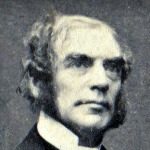Quotes about Holy_Spirit-Deity
As to the Holy Spirit, if He is not fully God, the implications for salvation are again serious. Scripture teaches that the Holy Spirit regenerates believers and indwells and fills them, but if the Holy Spirit is a lesser God or no God at all, how can we be sure that He can do any of these things? Moreover, unless He is coequal in being and purpose with the Father and the Son, what guarantees that even if He tried to do such things, the Father and the Son would recognize his actions as appropriate and relate to us accordingly?
The Holy Spirit – the glorious third member of the Trinity – is no less God than the Father or the Son. Thus, to dishonor the Spirit is to dishonor God Himself. To abuse the Spirit’s name is to take God’s name in vain. To claim He is the one who empowers self-willed, whimsical, and unbiblical worship is to treat God with contempt. To turn the Spirit into a spectacle is to worship God in a way that He deplores.
The Holy Spirit is a Divine Person
1. What is said of God is said of the Spirit (Ac. 5:3-4).
2. The Holy Spirit is identified with Yahweh (Ac. 7:51, quoting Ps. 78:17,21; Heb. 10:15-17, quoting Jer. 31:33-34).
3. The activity of God = the activity of the Holy Spirit (e.g., in creation, conversion, etc.).
4. “God said” = “the Spirit said” (Isa. 6:9 / Acts 28:25).
5. We are the “temple of God because the Holy Spirit dwells in us” (Eph. 2:22; 1 Cor. 6:19). If the Holy Spirit is not God, how could we properly be called the temple of God simply because the Spirit indwells us?
6. Blasphemy against the Holy Spirit is the only unforgivable sin (Mt. 12:31; Mk. 3:28).
The Person of the Holy Spirit, November 8, 2006, www.enjoyinggodministries.com. Used by Permission.
Attributes/Actions of deity are ascribed to the Spirit.
1. Omniscience (Isa. 40:13-14; 1 Cor. 2:10-11).
2. Omnipresence (Psm. 139:7-8).
3. Omnipotence (as seen in the Spirit’s role in creation [Gen. 1], providence [Psm. 104:30], regeneration, etc.; see especially Zech. 4:6).
4. Eternality (Heb. 9:14).
5. Holiness (used of the Spirit only twice in OT: Psm. 51:11 and Isa. 63:10).
The Person of the Holy Spirit, November 8, 2006, www.enjoyinggodministries.com. Used by Permission.
The names of the Spirit suggest (require?) His deity.
1. Spirit of glory (1 Pt. 4:14).
2. Spirit of grace (Heb. 10:29).
3. Spirit of life (Rom. 8:2).
4. Spirit of truth (John 14:16; 15:26; 16:13).
5. Spirit of wisdom and revelation (Eph. 1:17).
The Person of the Holy Spirit, November 8, 2006, www.enjoyinggodministries.com. Used by Permission.
It can be well argued that once the personality of the Spirit is established, the argument about His deity is over. The “Spirit of God” who is said to be omnipresent (Ps 139:7), omniscient (1 Corinthians 2:10-11), and active in the very creation itself (Genesis 1:2; Psalm 104:30) hardly fits the description of some kind of lesser being. But the fact that this Spirit shares the one divine name with the Father and the Son (Matthew 28:19) makes His deity indisputable.
It is…incredible, and certainly inexplicable…that all manner of blasphemy against the whole character of God, particularly against His moral character, should be forgiven; and yet that blasphemy against a single natural attribute should never be forgiven. And what shall be thought of a doctrine that teaches that blasphemy committed against the Divine attribute of power is more heinous and unpardonable than blasphemy committed against God Himself?




